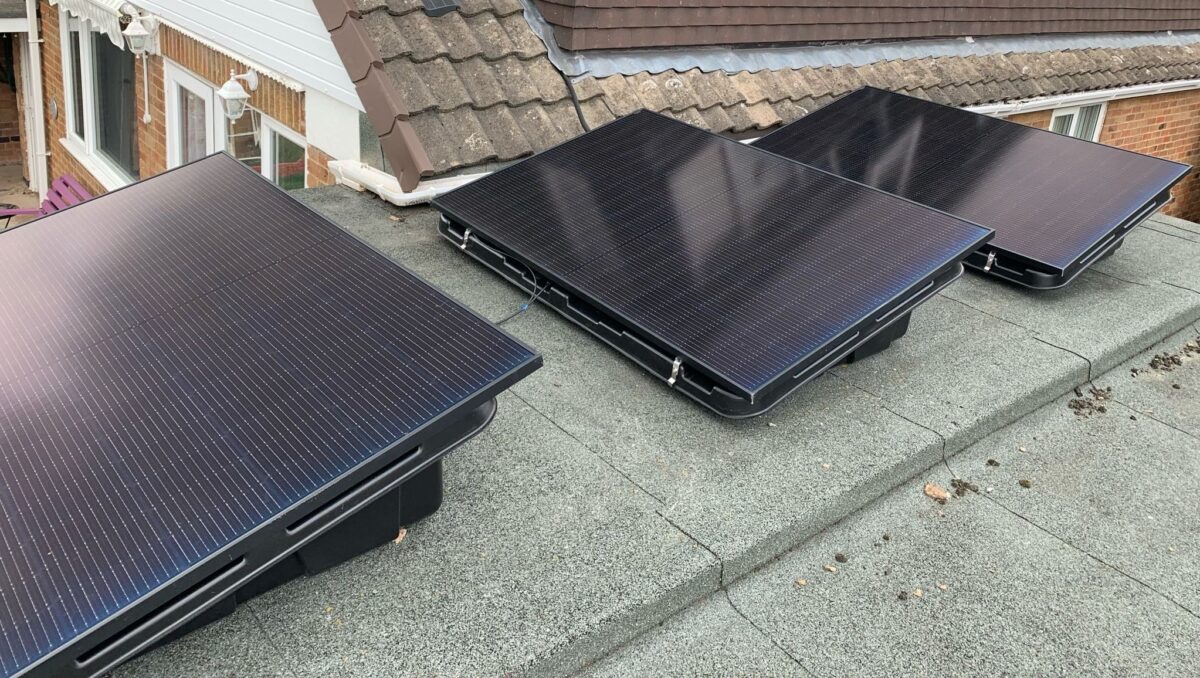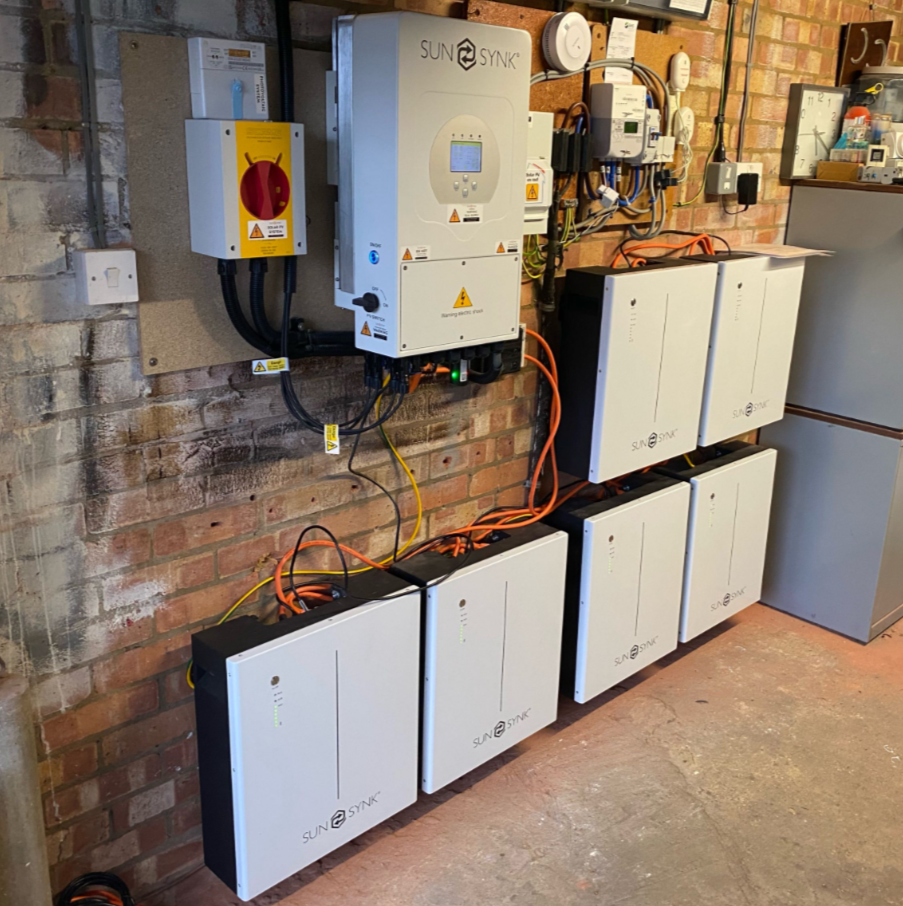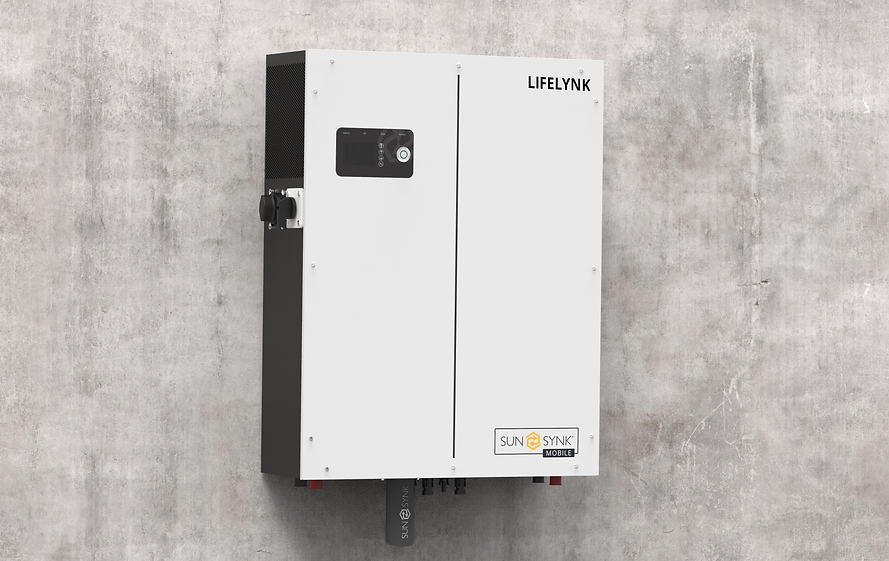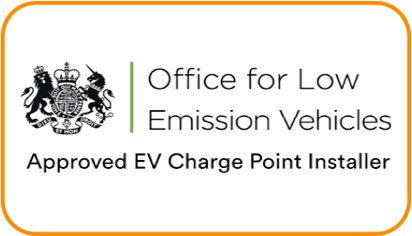According the latest ONS data, UK inflation has now fallen to 4.6% – the lowest it has been in two years. This has largely been attributed to a drop in gas and electricity prices.
Amidst the cost of living crisis, cheaper energy has no doubt come as a welcome relief to many. However, there is bad news too: the government has no plans to bring back the Energy Bill Support Scheme after scrapping it in March 2023. This means that despite lower energy prices, UK households may find themselves in no better a financial position this winter than they were a year ago.
Read on to learn more about what the withdrawal of the energy bill discount could mean for your budget over the colder months. We’ll also explore how you could save money with an alternative energy solution such as a home solar PV system.

Will UK Households Really Benefit from Cheaper Energy Bills This Winter?
The latest ONS inflation figures from November 2023 show that the Consumer Price Index (CPI) now stands at 4.6%, down from 6.7% in September. This steep drop appears to be a reflection of lower gas and electricity prices. In the year leading up to October 2023, gas costs decreased by 31.0%, while electricity fell by 15.6%.
As many struggle with rising energy bills in the winter months, this development is certainly welcome on the surface. But when you consider the bigger picture, the financial benefit for UK households may be less substantial than previously thought. This is because the government energy bill discount, which was a lifeline for many last winter, was scrapped earlier this year.
Last October and November, all English, Welsh and Scottish households received a £66 per month bill reduction under the Energy Bill Support Scheme. This increased to £67 per month from December to March, for a total discount of £400. The scheme ended in March 2023.
Lack of Government Energy Bill Discount Not Included in Inflation Figures
Money Saving Expert Martin Lewis recently took to Twitter/X to address this glaring issue. He stated that “lower inflation is welcome, but there’s one thing not being said about today’s 4.6% Oct figure: the big drop in energy prices is being credited. Yet time last year, all homes got a £66/mth reduction from govt. They don’t this year. That’s excluded from inflation figures.”
Lewis went on to claim that, in practical terms, this means that the average home’s energy costs have “hardly dropped, so the gain households feel won’t really materialise.”
Currently, the government has no plans to reintroduce the Energy Bill Support Scheme for 2023-2024. Some households will qualify for Cost of Living Payments – however, only those receiving certain benefits (such as Universal Credit) will be eligible.
Adding to this unfortunate reality is the fact that while energy costs have dropped, other living expenses remain high. For example, food prices were around 30% higher in October 2023 compared to October 2021. So, despite inflation slowing, it’s likely that many families will continue to feel the squeeze this winter.
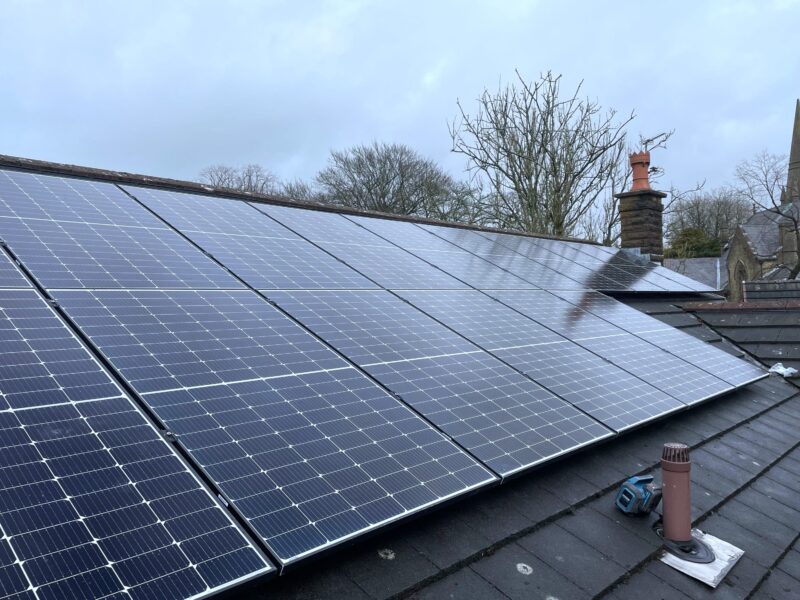
Could Solar Panels Offer a Solution to Unmanageable Energy Costs?
With the cost of living crisis ongoing, and no energy support on the horizon, more and more UK households have begun investing in alternative power solutions. Domestic solar panels, for example, allow you to generate your own supply of clean, renewable electricity. This can help to save you money by:
- Powering your home with solar energy for no cost beyond the initial outlay, thereby reducing dependence on the national grid
- Selling any surplus electricity generated for extra income through the Smart Export Guarantee (SEG) scheme
If you invest in a battery storage system, you can store excess solar energy generated during the day for later use. For homes on multi-rate tariffs, you can also purchase cheaper electricity during off-peak hours and store it in your batteries. When solar output is lower, you can use this supply instead of drawing from the grid at peak times.
Modern solar PV systems work efficiently year-round, even during winter and on cloudy days. Additionally, solar panels are low-maintenance and typically last for 25-30 years – so your investment will pay for itself in energy bill savings over time.
Want to Save Money This Winter? Get in Touch with Contact Solar
We are Contact Solar: trusted UK solar panel and battery storage experts. Since 2012, we have been dedicated to helping homes and businesses harness all the benefits of renewable energy.
As a Which? Trusted Trader, we are proud to offer unbeatable quality, service and value for money on MCS-certified solar PV systems. Our knowledgeable advisors can determine the ideal solar panel and battery setup for your property to guarantee the best possible return on investment. We’ll even beat any like-for-like competitor quotation by £200.
To find out how much you could save, reach out to Contact Solar today for a free, no-obligation quote. Call us on 0800 201 4527, email [email protected] or fill in our quick online quote form.
